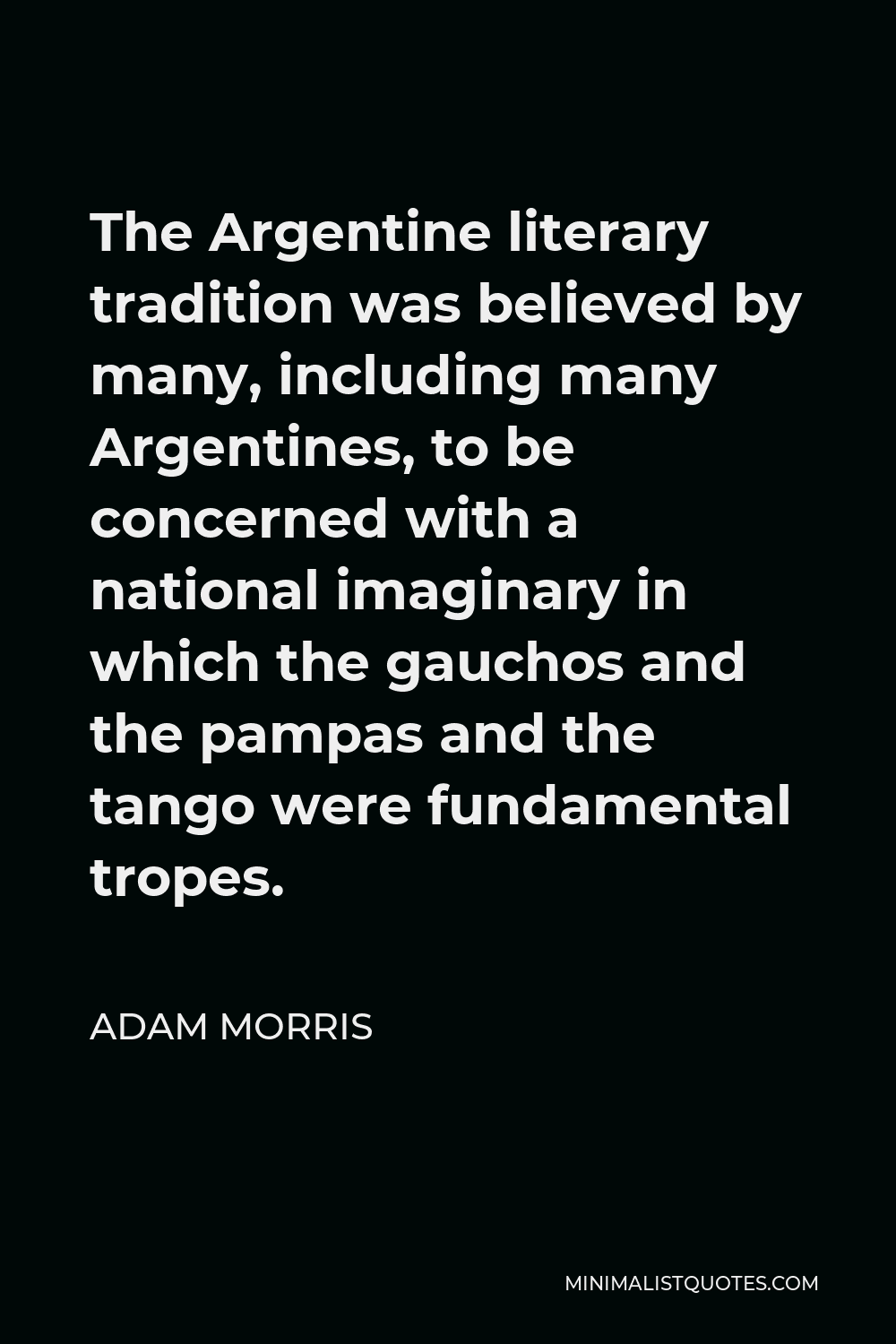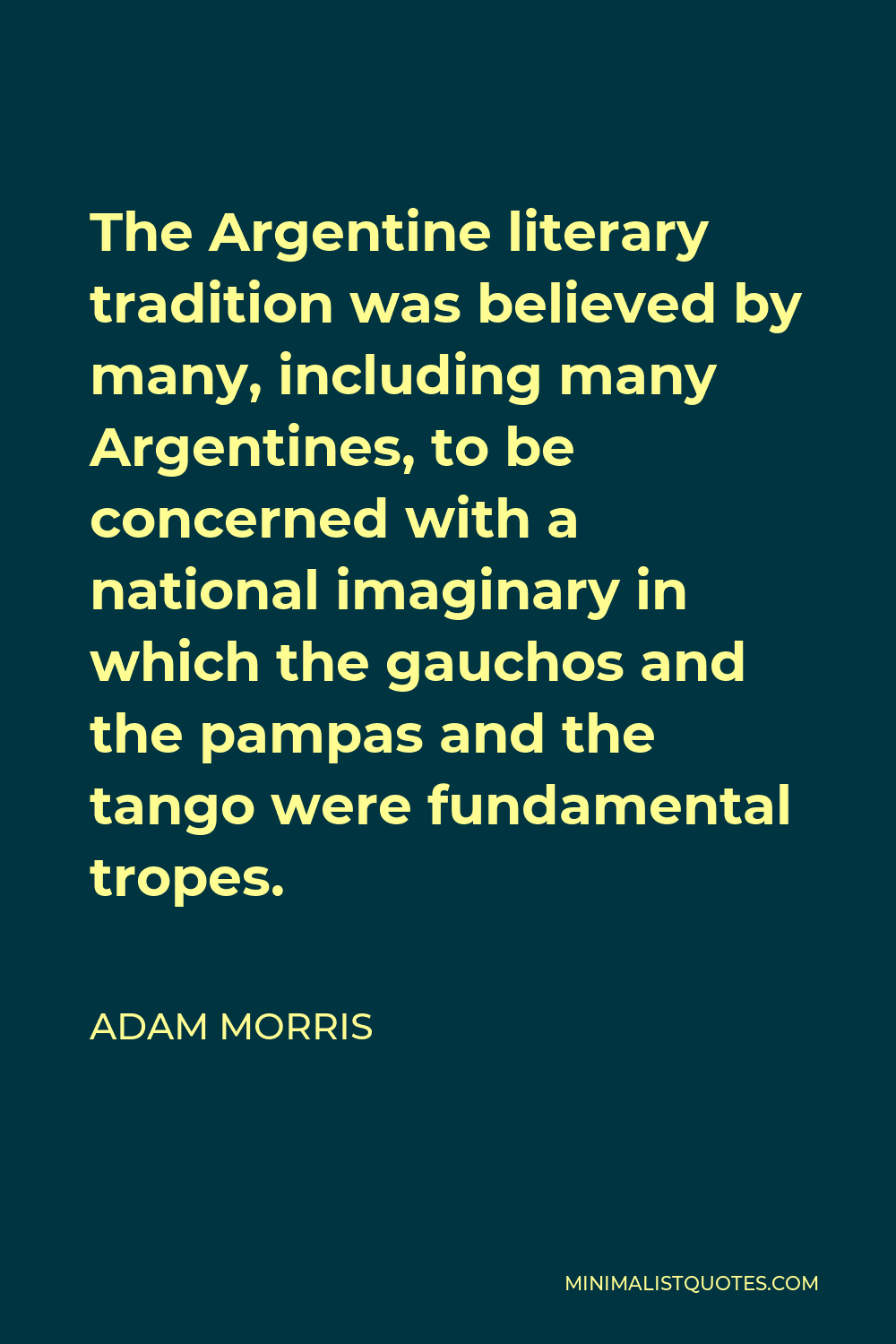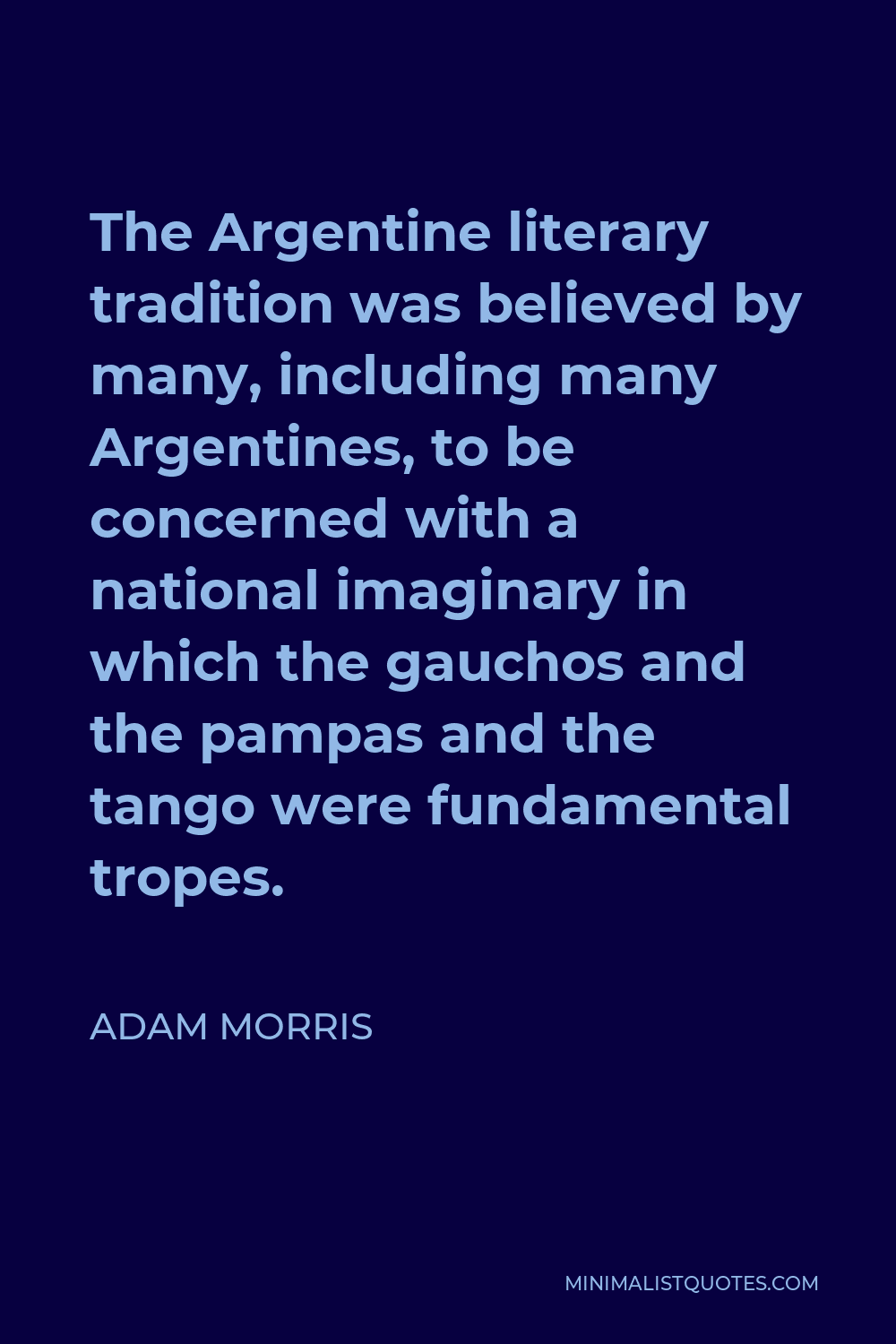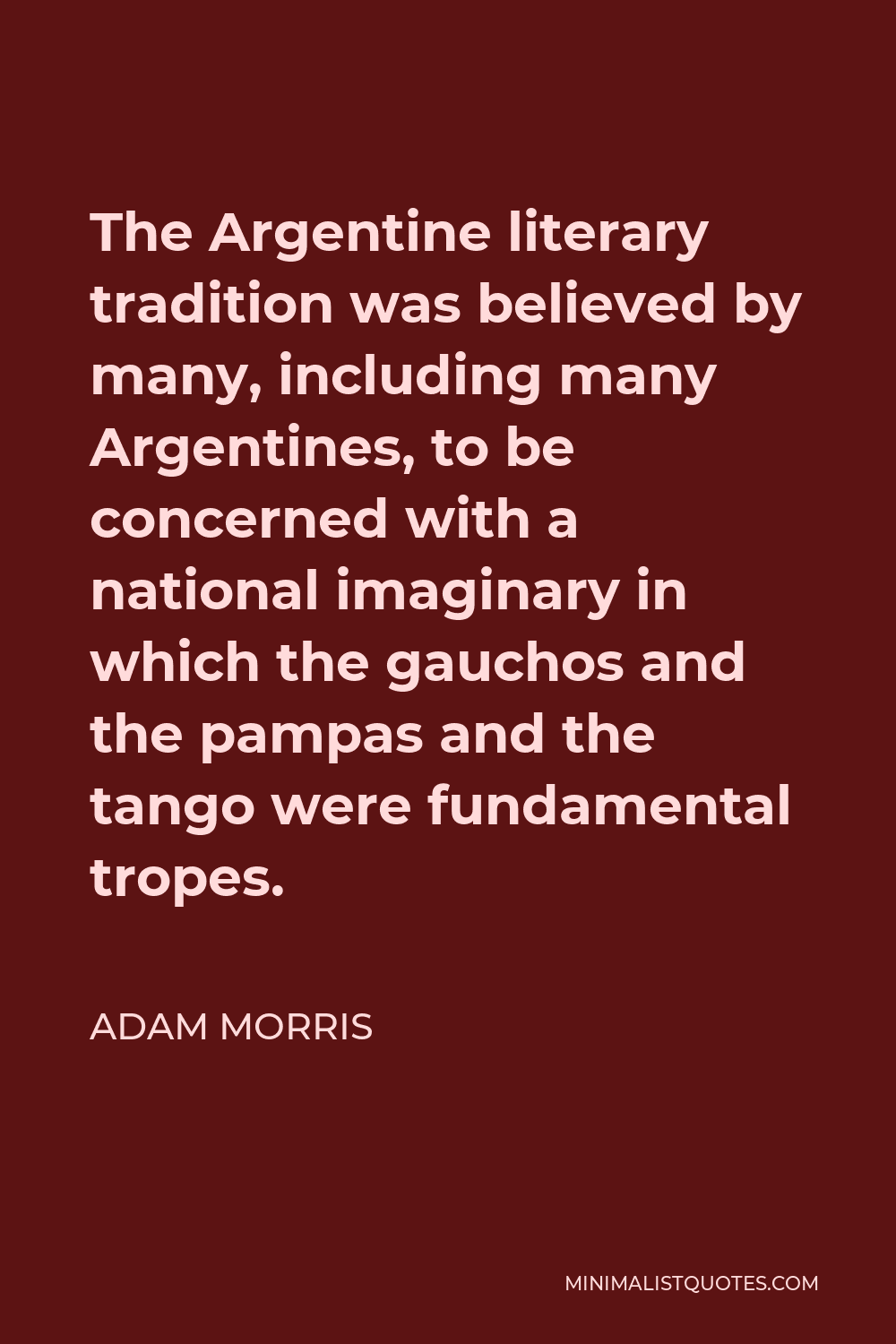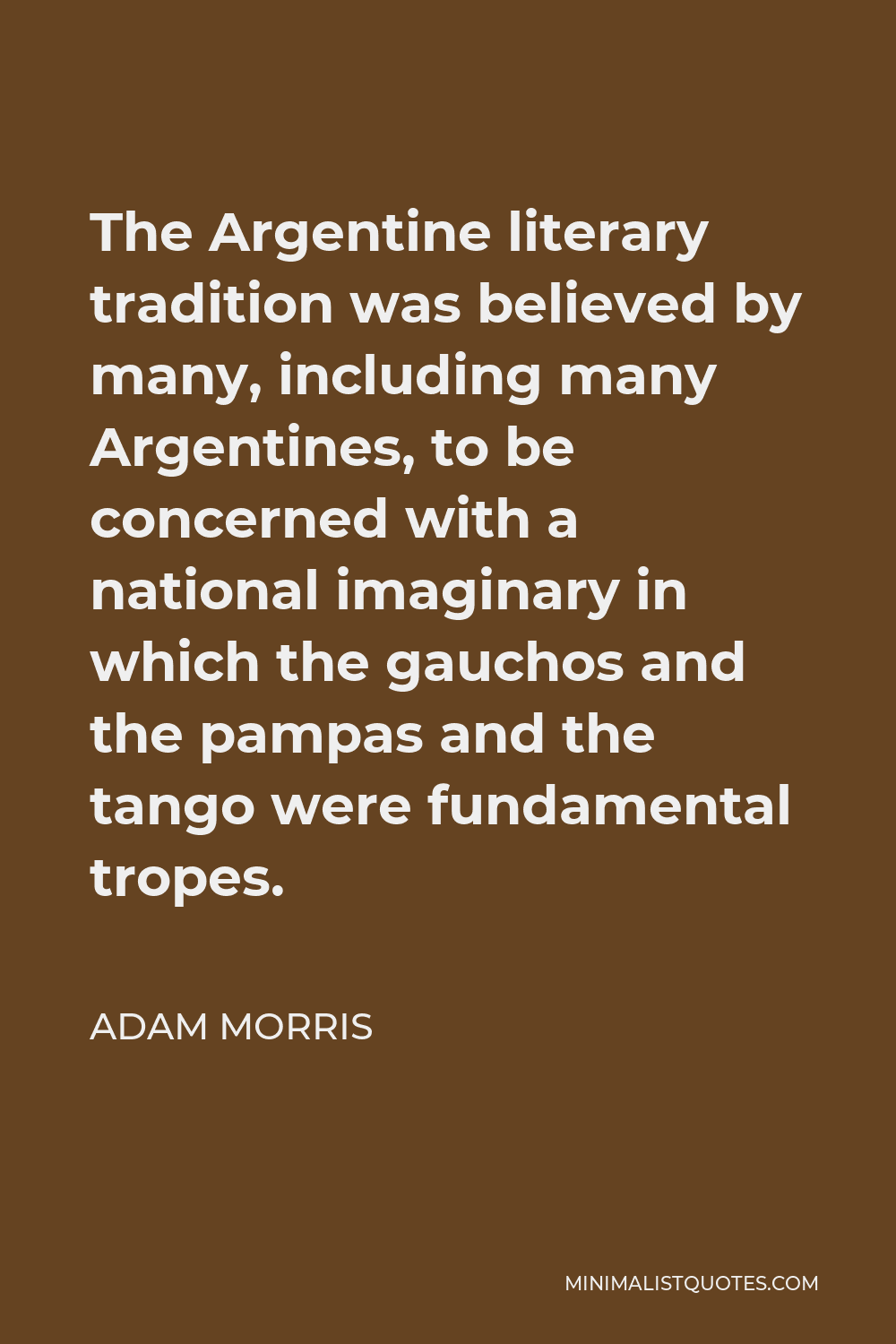The main reason I decided to study Latin American literature was because I’d gotten somewhat bored by the American fiction I was reading. I am not drawn to a specific style or aesthetic.
ADAM MORRISThe Argentine literary tradition was believed by many, including many Argentines, to be concerned with a national imaginary in which the gauchos and the pampas and the tango were fundamental tropes.
More Adam Morris Quotes
-





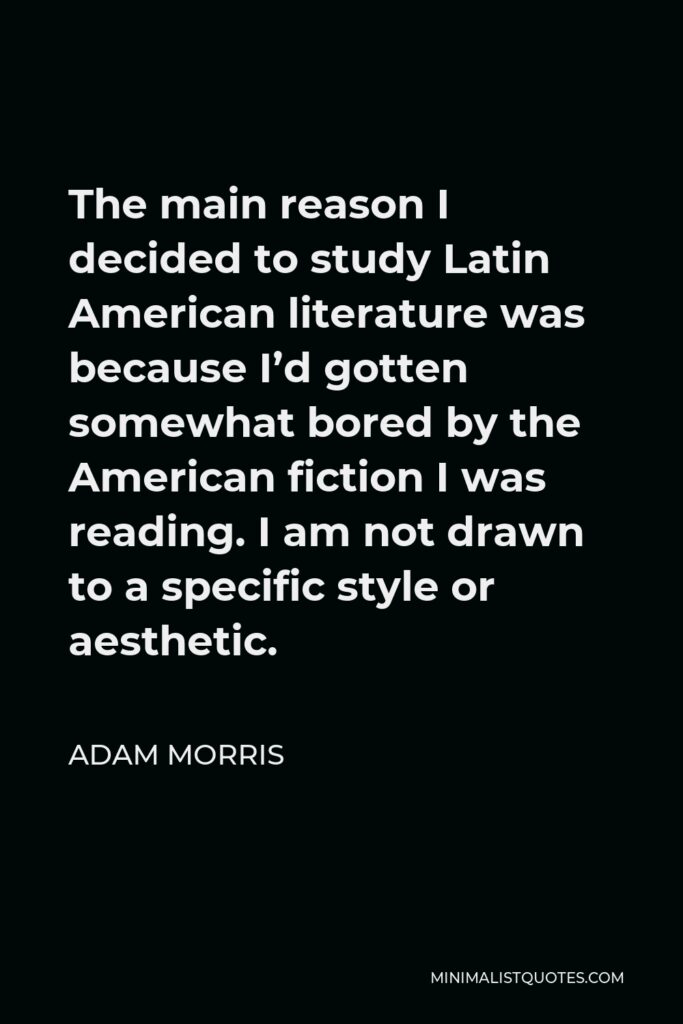

-





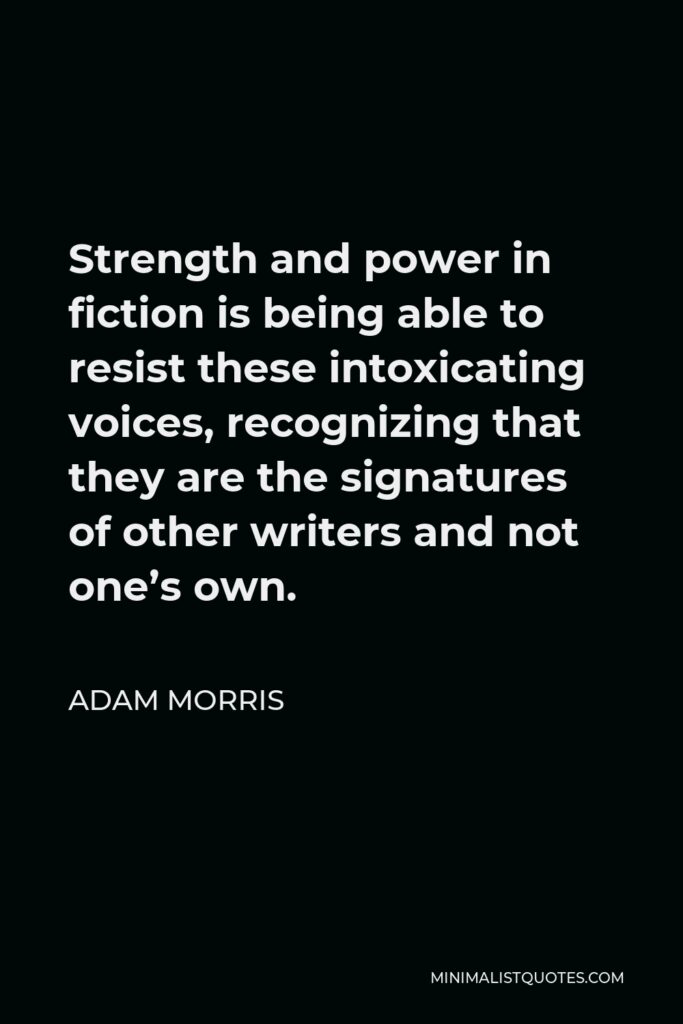

Strength and power in fiction is being able to resist these intoxicating voices, recognizing that they are the signatures of other writers and not one’s own.
ADAM MORRIS -







So likewise in João Gilberto Noll, readers shouldn’t expect samba and Carnival and football. The Brazilian national identity is not one of his primary concerns.
ADAM MORRIS -





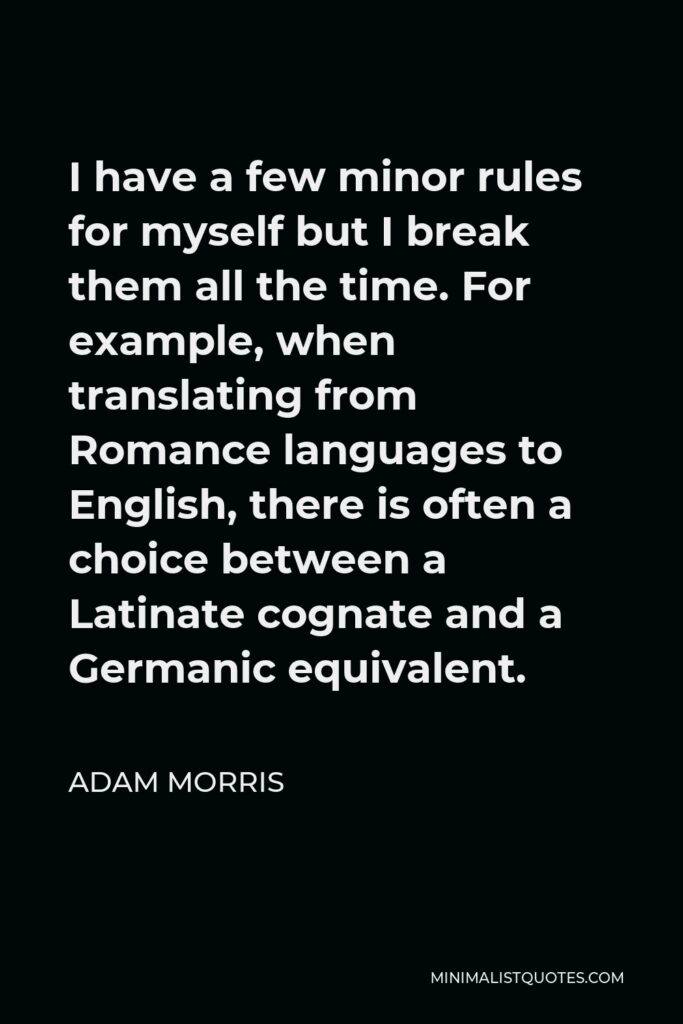

I have a few minor rules for myself but I break them all the time. For example, when translating from Romance languages to English, there is often a choice between a Latinate cognate and a Germanic equivalent.
ADAM MORRIS -





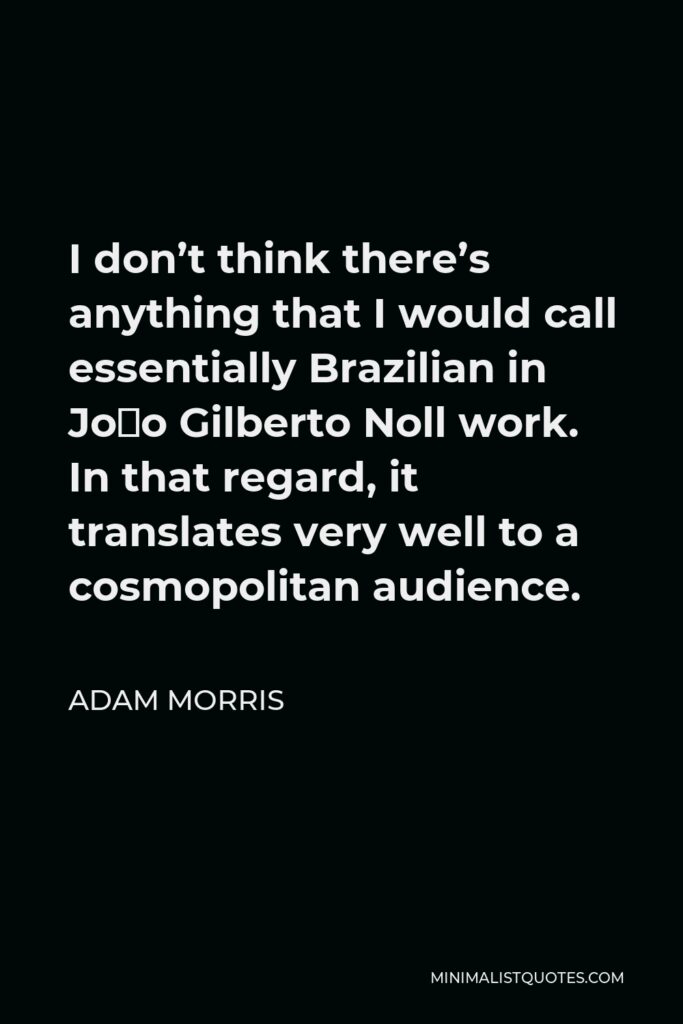

I don’t think there’s anything that I would call essentially Brazilian in João Gilberto Noll work. In that regard, it translates very well to a cosmopolitan audience.
ADAM MORRIS -





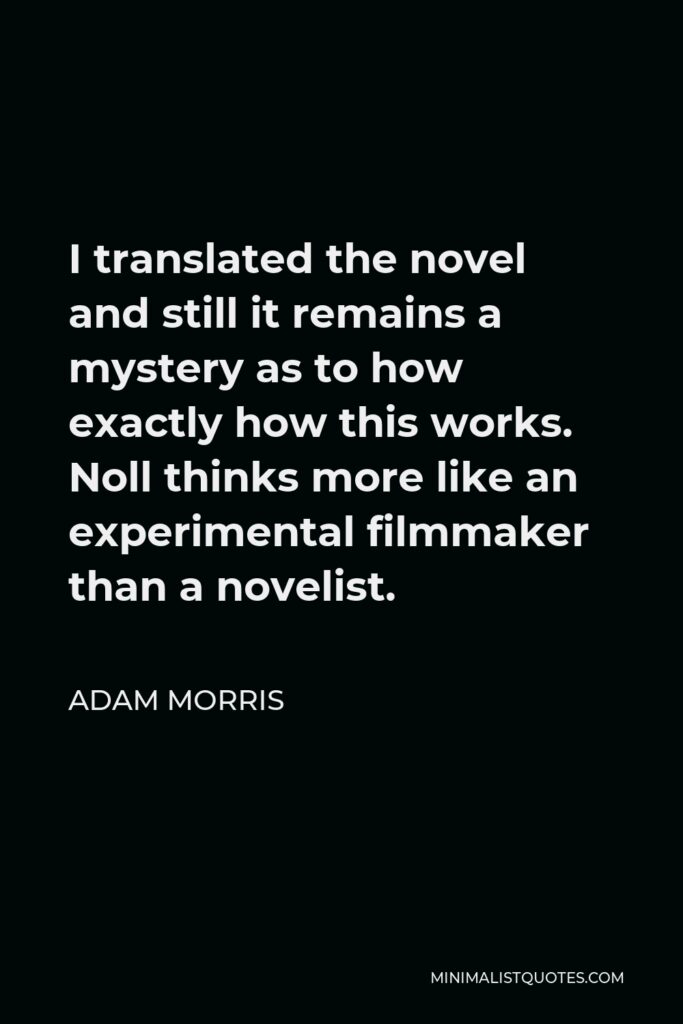

I translated the novel and still it remains a mystery as to how exactly how this works. Noll thinks more like an experimental filmmaker than a novelist.
ADAM MORRIS -





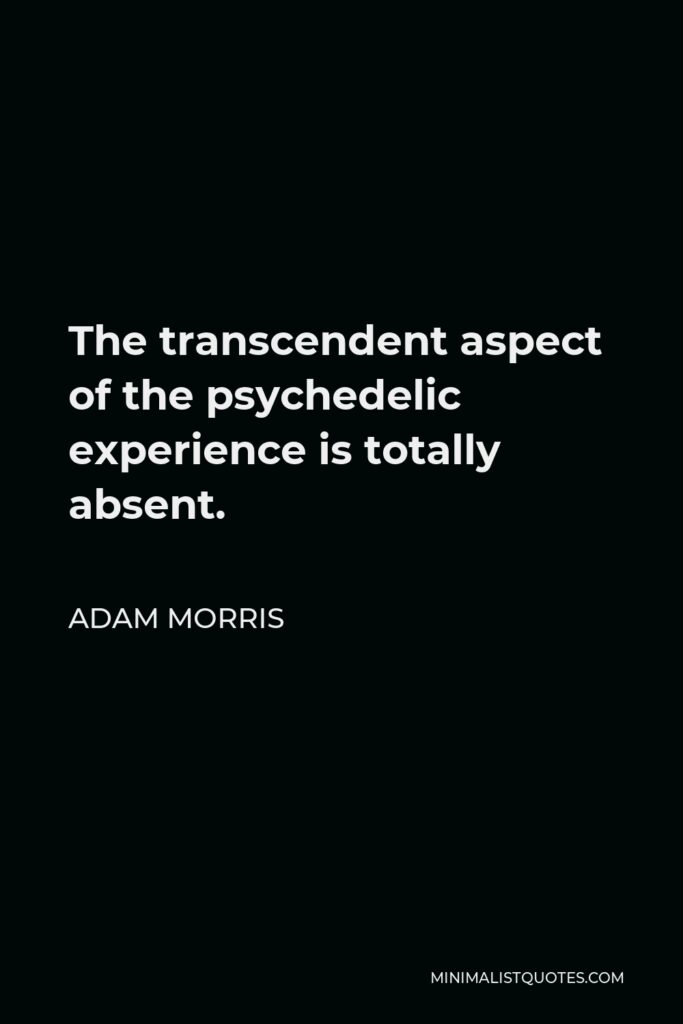

The transcendent aspect of the psychedelic experience is totally absent.
ADAM MORRIS -





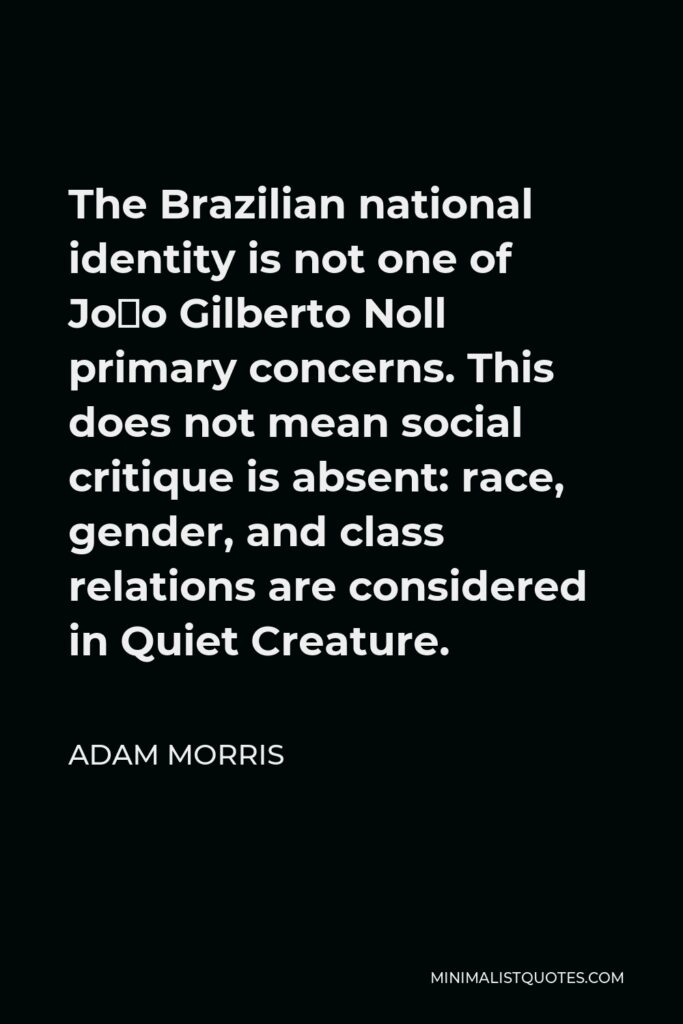

The Brazilian national identity is not one of João Gilberto Noll primary concerns. This does not mean social critique is absent: race, gender, and class relations are considered in Quiet Creature.
ADAM MORRIS -





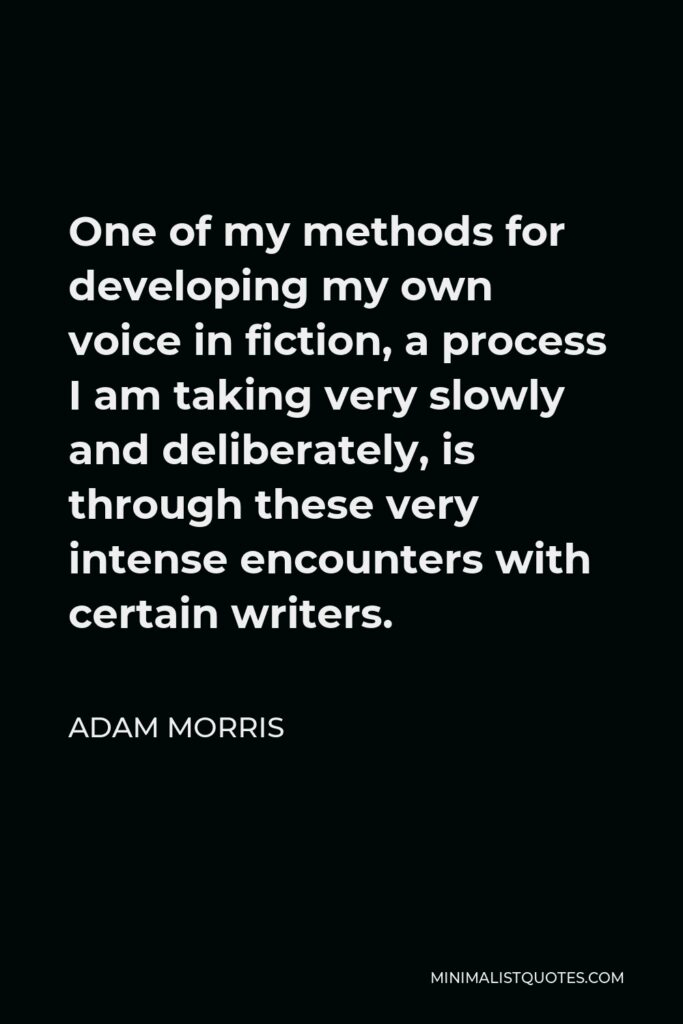

One of my methods for developing my own voice in fiction, a process I am taking very slowly and deliberately, is through these very intense encounters with certain writers.
ADAM MORRIS -





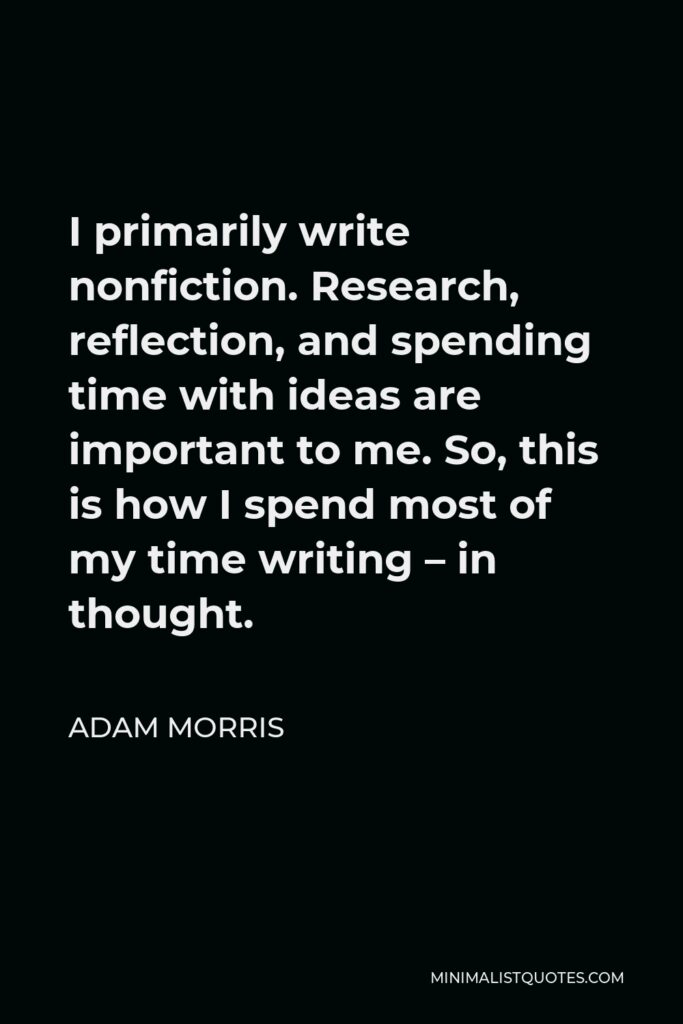

I primarily write nonfiction. Research, reflection, and spending time with ideas are important to me. So, this is how I spend most of my time writing – in thought.
ADAM MORRIS -





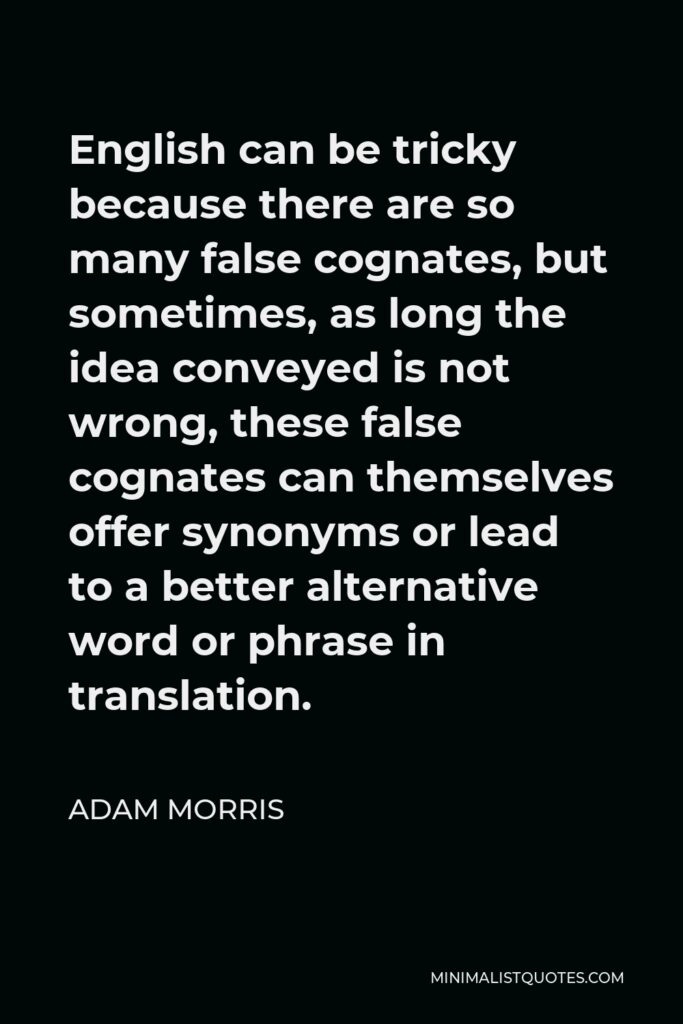

English can be tricky because there are so many false cognates, but sometimes, as long the idea conveyed is not wrong, these false cognates can themselves offer synonyms or lead to a better alternative word or phrase in translation.
ADAM MORRIS -







And these are universal relational matters, not necessarily particular to any country.
ADAM MORRIS -





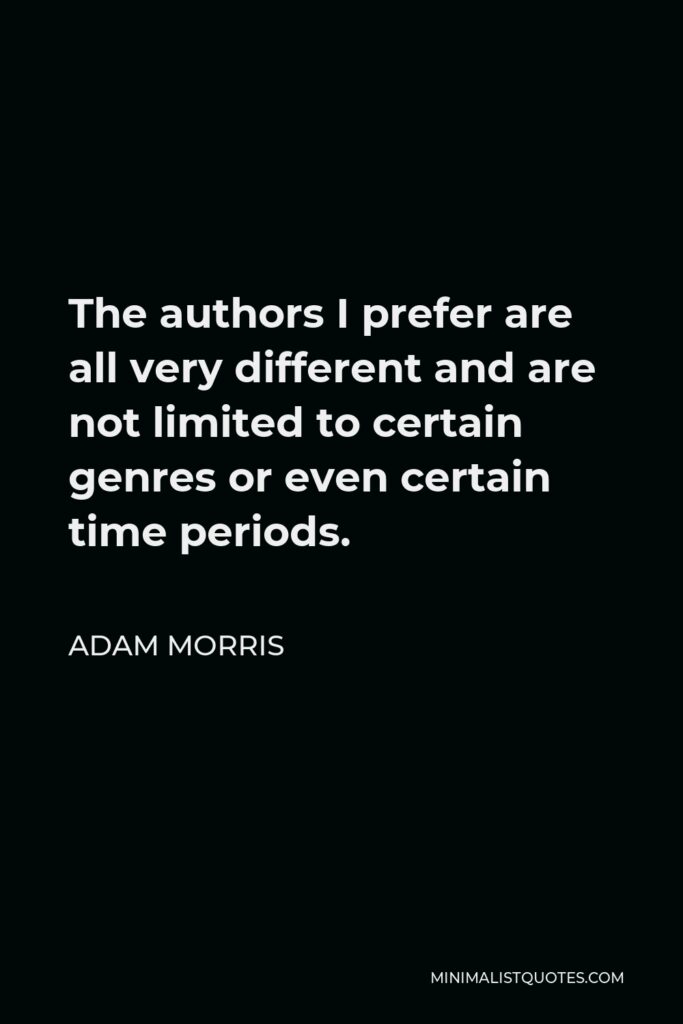

The authors I prefer are all very different and are not limited to certain genres or even certain time periods.
ADAM MORRIS -





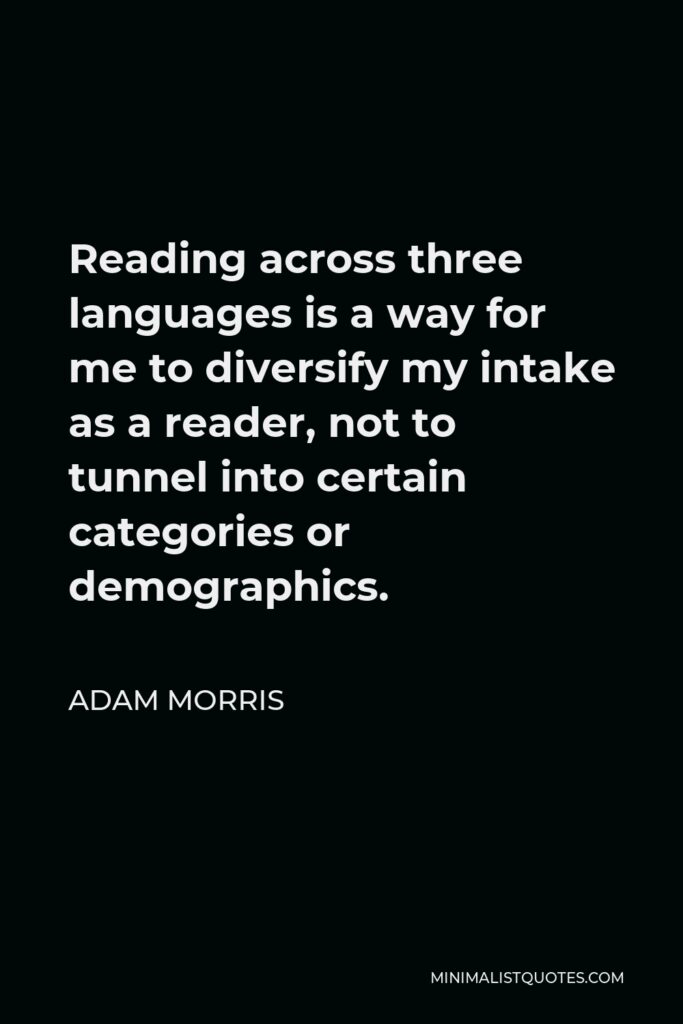

Reading across three languages is a way for me to diversify my intake as a reader, not to tunnel into certain categories or demographics.
ADAM MORRIS -







An easy example would be the Portuguese escuridão:
ADAM MORRIS -





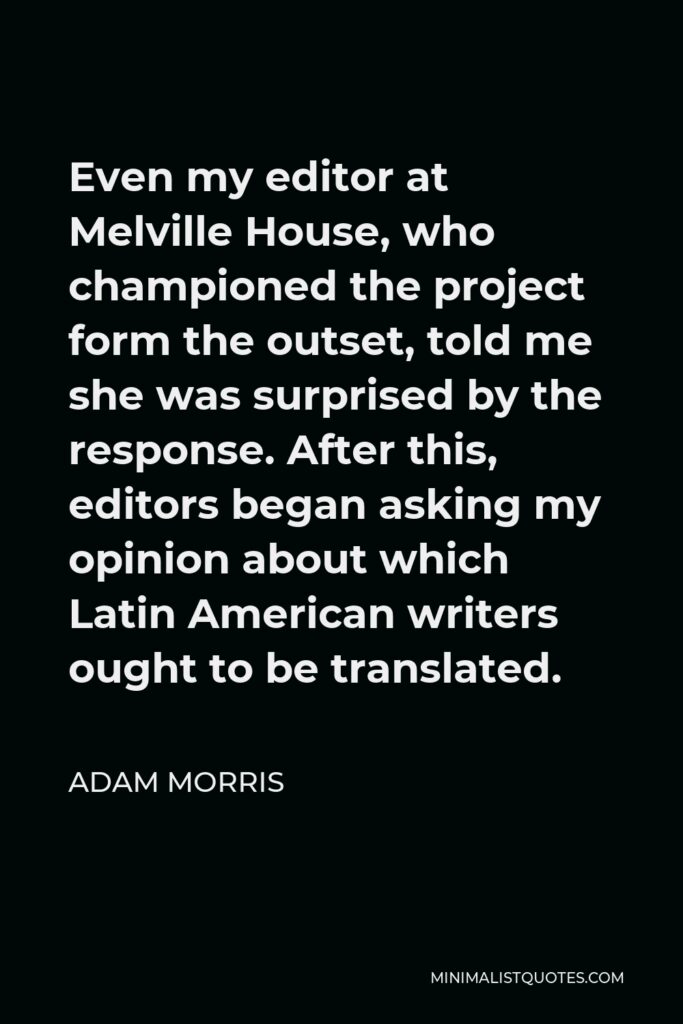

Even my editor at Melville House, who championed the project form the outset, told me she was surprised by the response. After this, editors began asking my opinion about which Latin American writers ought to be translated.
ADAM MORRIS
